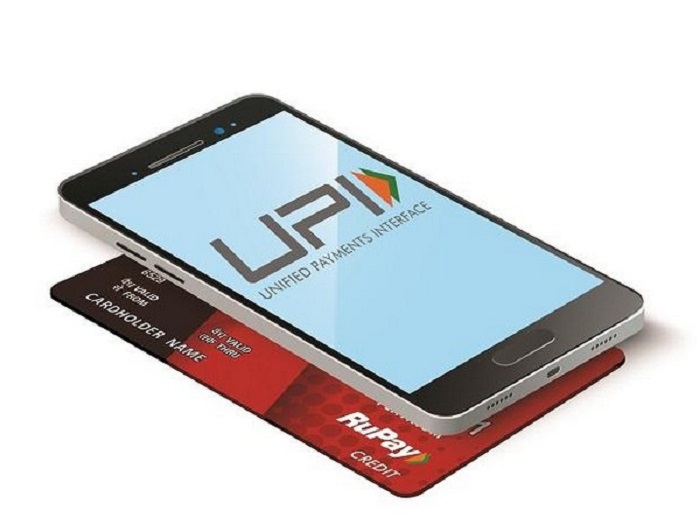
New Delhi: Started in 2016, Indian’s ‘Unified Payments Interface’ (UPI) popularity continues to grow in a very short period of time crossing monthly volumes exceeding 9 billion transactions for the first time in May 2023, which is a 58 percent YoY (Year over Year) volume growth.
UPI payment volumes now exceed 75 percent of all digital payments made in the country. Its global acceptance signifies a shift towards a more interconnected digital world, where speed, convenience, and security drive economic collaboration across borders.
It is not just a payment system; it's a bridge connecting nations through seamless financial transactions.
The volume growth of UPI peer-to-merchant (P2M) payments continues to trend significantly higher than that of peer-to-peer (P2P) payments, a proof that Indian merchants have accepted UPI as a part and parcel of their business payment system.
According to a recent report by PwC, the UPI will record 1 billion transactions per day by FY 2026-2027, showing that the future growth projections for growth of the indigenous digital payment system are quite promising.
It is a proud moment for India when Germany's Federal Minister for Digital and Transport, Volker Wissing, reportedly used UPI at a vegetable market in India. Impressed by ease and convenience of the transaction, he said he was ‘very fascinated’.
He further added that India’s UPI success stories could be a model for other countries.
The universal acceptance of UPI is itself testament to its advantages. One of the key benefits is the swiftness of transactions. UPI transactions are near-instantaneous, making them ideal for cross-border trade and personal transfers.
Additionally, UPI eliminates the need for cumbersome banking details, streamlining the process for users and reducing the possibility of errors.
The UPI has been making waves on the global stage with its rapid adoption and seamless functionality. Stringent regulations around know-your-customer, top-up, and payment restrictions and other guide lines by the banking ombudsman gives little scope of anonymous or fraudulent transactions and increases faith on the system, both for the users as well as the authorities.
Moreover, UPI transactions are secured through multi-factor authentication, ensuring that financial data remains confidential and protected from cyber threats. This commitment to security has played a pivotal role in building trust among users, both within India and across international borders. The success of UPI serves as a blueprint for other nations seeking to modernise their payment infrastructure and enhance financial inclusion.
Speaking on the sidelines of the G20 digital economy working group meeting, Indian Union Minister for Railways, Communication, Electronics and Information Technology Ashwini Vaishnaw said that ‘India had signed Memoranda of Understanding (MoU) with 13 countries to adopt the UPI interface for digital payments, and that Singapore has completed its UPI integration’.
The worldwide acceptance of UPI is not only a testament to its efficiency but also a significant step towards creating a more interconnected global economy. One after another, nations are embracing this groundbreaking technology, allowing for secure and convenient cross-border transactions. The UPI has now gained international recognition, with countries like Sri Lanka, France, Saudi Arabia, Bahrain, Maldives, Bhutan, Oman and the United Arab Emirates (UAE) embracing its transformative potential.
The list of countries who are interested to adopt this Indian digital payment system is growing. The UPI is steadily becoming globally attractive amid measures to enable it for seamless cross-border transactions which would eventually lower the cost of fund transfers and remittance payments.
In France, the Indian Prime Minister announced from the iconic Eiffel Tower that Indian tourists would soon be able to utilize UPI for making Rupee payments. Singapore's PayNow system entered into an agreement with UPI in 2023 itself, enabling seamless cross-border transactions between the two nations.
Meanwhile, countries such as Bhutan and Nepal have already embraced the UPI system, underscoring its versatile nature and compatibility with varying financial landscapes.
According to a Forbes report, it is no exaggeration to say that UPI real-time payments system has been a game changer for the subcontinent. In a nutshell, UPI has transformed how Indians make payments, allowing them for the first time to easily transfer money instantly from one bank account to another: peer-to-peer and peer-to-business.
New York Times writes, ‘India's homegrown instant payment system has remade commerce and pulled millions into the formal economy’. It added that that India's UPI real-time payments system has been a game changer for the entire subcontinent. In a nutshell, ‘UPI has transformed how Indians make payments, allowing them for the first time to easily transfer money instantly from one bank account to another - from a customer to a business, or between individuals’.
Rapid expansion of the Indian digital payment system UPI beyond India's borders underscores its exceptional utility and the universal demand for seamless, secure, and efficient payment solutions. With India taking the lead, UPI's global acceptance promises to revolutionise the way nations conduct financial transactions, fostering closer economic collaboration and shaping a more interconnected world.